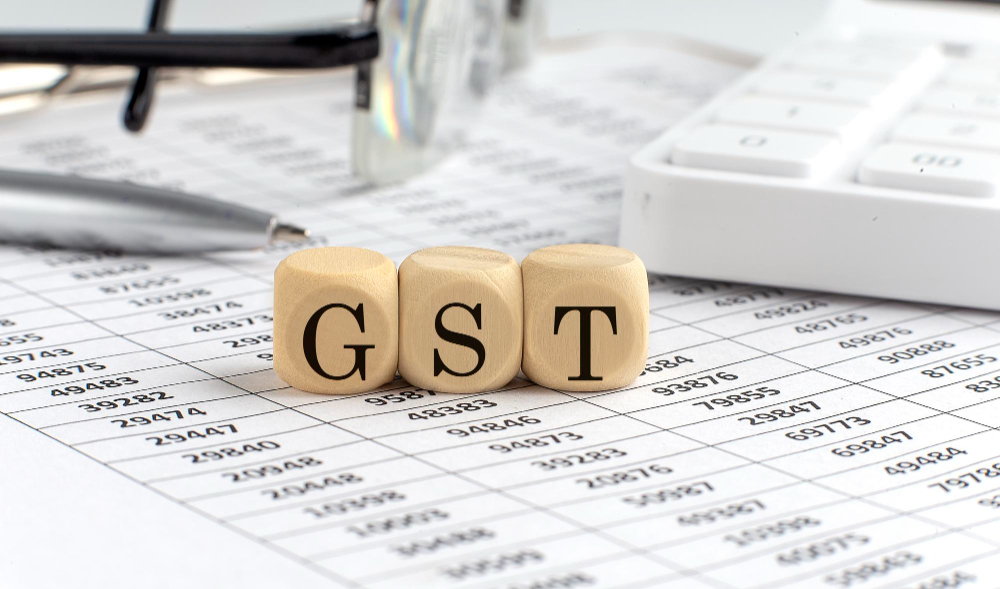GST Services in Singapore
Shorts Business Services offers comprehensive assistance for GST filing in Singapore.

What is Goods and service Tax?
Goods and service tax (GST) Singapore is an indirect tax levied on the import and supply of most of the goods and services sold for consumption in Singapore. Singapore has the lowest GST rate in the world at 7%. This 7% tax is levied on the selling price of goods and services. The GST is paid by the end consumer, which is then remitted to the government by the businesses. Hence, GST never becomes an additional cost to pay for the companies. The businesses only act as the tax collector for the government and provide revenue for the government.
Why Choose SHORTS Business Services for GST Outsourcing?
SHORTS Business Services understands the challenges in successfully complying with GST in Singapore, which is why outsourcing can reduce costs while improving productivity and accuracy for your operations. Here’s why partnering with SHORTS Business Services is a smart decision for your company!
Expertise You Can Trust
Our team has in-depth knowledge of GST regulations, keeping up-to-date on any legislative changes that impact GST compliance and keeping ahead of any possible penalties that might occur in filing. Leveraging our expertise, our specialists manage GST filings accurately and efficiently while mitigating risks related to errors or potential penalties for filings submitted accurately or late.
Cost-Efficient Solutions
SHORTS Business Services can save your organization costs associated with an internal team, such as recruitment, training and salaries - so that your focus stays where it matters: expanding and improving your business's performance and profitability. By leaving GST compliance management up to us, your energy can go where it counts: growing business operations while strengthening bottom lines.
Seamless Compliance and Risk Management
Our advanced systems and technologies guarantee your GST filings are processed accurately and on time while minimizing risks that expose you to fines or audits. Our knowledgeable team guides you through all compliance requirements while safeguarding against fines or audits for peace of mind.
Flexible and Scalable GST Services in Singapore
As your business develops, our flexible GST compliance services adapt to meet changing compliance demands. We deliver tailored GST solutions for specific business requirements to achieve maximum value for you.
When is a Company Eligible for GST Registration in Singapore
Understanding Singapore company GST registration requirements is vitally important to businesses operating here, and at SHORTS Business Services, we help companies handle their complex compliance obligations. Here is an outline of when a business is eligible for a GST registration company in Singapore.
A company must register for GST in Singapore under the following conditions:
Taxable Turnover Threshold
Once your business's taxable turnover surpasses S$1 million over the last 12 months, GST registration becomes necessary. Furthermore, registration should become compulsory should its projected taxable turnover surpass this figure within one year - registration cannot be waived based on estimates alone.
Overseas Vendor Registration (OVR) Regime
If you provide digital services to customers in Singapore with annual global turnover exceeding S$1 million and sales exceeding 100K to Singaporean customers in any year, under this regime GST registration becomes obligatory.
Reverse Charge Mechanism
GST accounting under the reverse charge mechanism could be necessary if your business incurs over S$1 million annually in imported services that do not qualify for full input tax credit.
Voluntary GST Registration
Businesses can also opt for voluntary GST registration under certain conditions:
Business Strategy
Registering your voluntary registration can give your business added legitimacy while enabling you to claim input tax deductions on purchases, potentially cutting overall expenses.
Fulfilling Criteria
You must demonstrate that you are making or intend to make taxable supplies and have adequate systems in place for GST compliance.
Exceptions and Special Cases
Zero-Rated Supplies
You may not need to register for GST if your business deals primarily in zero-rated supplies, such as exporting goods or providing international services.
Exempt Supplies
Businesses dealing in exempt supplies, like certain financial services or residential properties, are generally not required to register for GST.
How to File GST Returns
To file GST returns in Singapore few key steps are required to follow for compliance and accuracy. Businesses should first prepare their books by recording transactions accurately, categorizing input tax (GST paid on purchases) with output tax (GST collected from sales) before filing returns.
If any GST payments are outstanding, follow the provided instructions to pay it via methods like GIRO, internet banking or at designated banks. Setting up a GIRO plan provides convenient automatic deductions from future GST payments.
This form will automatically calculate net GST by subtracting input tax from output tax, with any necessary supporting documents such as invoices or receipts to support your GST claims.
Next, use SingPass or CorpPass to log on to the myTax Portal on IRAS website, then navigate directly to its main menu to choose GST in myTax Portal.
Maintain all documents related to your GST return for at least five years as these may be requested during an audit process.
Prior to submitting the GST F5 form via myTax Portal, ensure double-checking all entries for accuracy.
Once logged in, complete the GST F5 form by reporting total sales revenue for the accounting period and entering the total amount of GST paid on business purchases.
GST return filing in Singapore is done within one month after each accounting period ends, with late filing penalties, including late submission fees and additional fines for continued noncompliance.

GST and GST Registration Company in Singapore
All the GST registered companies have to file GST returns with the Inland Revenue Authority of Singapore (IRAS). Businesses with more than S$1 million annual taxable turnovers are required to register for GST filing Singapore. Companies that register for GST have to collect goods on services tax on every sold or supplied goods and services by charging 7% additional in the cost of the actual price of the goods. Then, the businesses pass on the collected GST amount to government authorities. GST registered companies are mandated by the IRAS and ACRA to file GST returns on a monthly or quarterly basis.
The benefits included
SHORTS Business Services is a leading Singapore based company that offers GST registration services.
GST Registration Types in Singapore
Goods on services tax is levied on consumption of goods, and once the Singapore companies exceed a certain amount of taxable turnover threshold, they are required by the law to register for GST filing. It is a self-registering process, so the companies have to keep a check on their revenue to assess when they are applicable for GST registration.
Compulsory Registration For GST
Companies have to monitor and assess their turnover on a quarterly basis to determine whether they need to register for GST or not. Companies that fulfil any of the criteria mentioned above have to register within 30 days after determining the turnover.
Voluntary Registration For GST
Companies with taxable turnover of less than S$ 1 million in the past 12 months are not required to register for the GST; but, they can voluntarily register for GST if they want to. However, the authorities hold the right of approval for voluntary registration. Voluntary registration for GST Singapore has its benefits due to which companies prefer to do so.
Get GST Filing Services in Singapore
At Shorts Business Services, we provide businesses and companies assistance and guidance on GST, its calculations, GST registration process and help them complete formalities by IRAS for GST filing Singapore. Contact us to make GST filing a convenient and easy process!
Registration Process For GST
The GST registration process is easy and requires the companies to fill in various types of forms. Firstly, the company has to submit an application to the IRAS and different forms as per its business type and structure. It takes around three weeks to complete the whole procedure.
SHORTS Business Services offers expert services to file GST returns in Singapore efficiently.
Choose SHORTS Business Services for excellent company registration services in Singapore.
Faq's

